For over thirty-eight years, Indiana’s courts have diligently reported information about their caseloads, their finances, and the services they provide, such as probation, guardian ad litem advocates, and court interpreters. The following tables comprise state-wide juvenile data compiled from detailed reports filed by every court in the state and published in an annual Judicial Service Report, which is available on the judiciary website. These are examples of data regarding juvenile cases in the courts.
Probation departments receive and investigate referrals of alleged juvenile misconduct. If the alleged conduct would be a crime if committed by an adult, the allegation is counted as a “non-status offense.” If the alleged conduct is only illegal because the person is a juvenile, such as truancy, then it is classified and counted as a “status offense.”
Juvenile Referrals Received by Probation
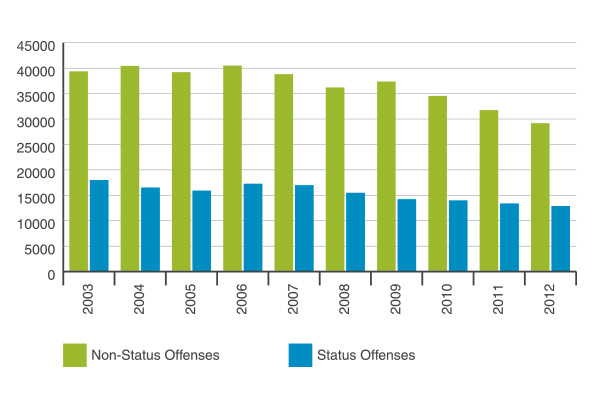
After a preliminary inquiry, the probation officer makes a recommendation to the court for one of six options: 1) that the court authorize the prosecutor to file a petition alleging the child to be a delinquent; 2) that the case be dismissed; 3) that the case or child be referred to another agency (to receive services, etc.); 4) that the case be informally adjusted; 5) that the court take some other action; or, 6) that the case be waived to criminal court (in very serious crimes). The attached table reflects the number and type of recommendations made by juvenile probation officers during 2012.
Recommendations by Probation for the 2012 Juvenile Referrals
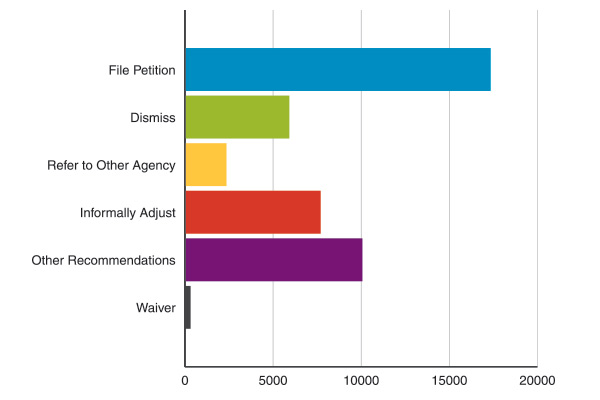
After a juvenile has been adjudicated as a delinquent and the court has held a dispositional hearing, the court may place the child on probation. The table below reflects the number of juveniles who were placed on, and released from, probation over the past ten years.
Juvenile Probation Supervisions Received/Disposed
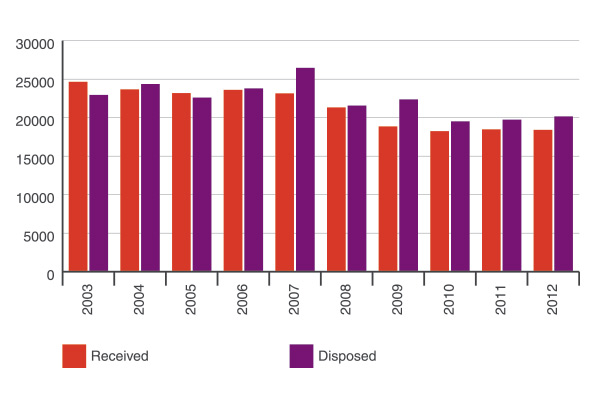
Juveniles are released from probation supervision in various ways. The different “methods of disposition” are reflected below.
Methods of Disposition for the Juvenile Supervisions Disposed in 2012
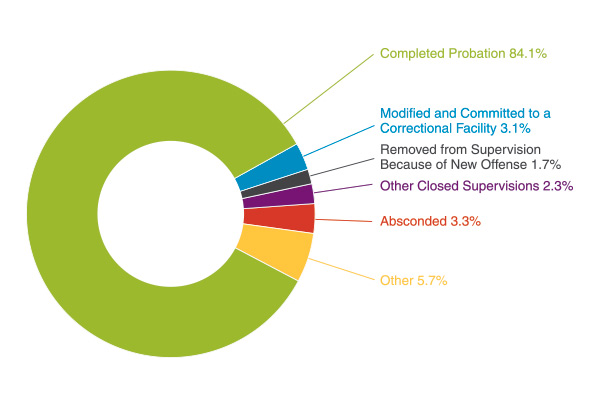
Indiana Code 31-31-10 requires that probation officers report information about “juvenile law services” which includes some demographic requirements. The table below reflects 2012 Juvenile Delinquent (JD) data only. This same data is available for JS and JM case types.
Juvenile Law Services Report: Juvenile Delinquents
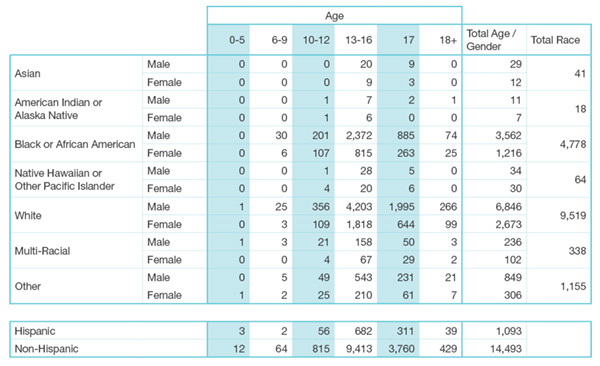
Indiana law requires the appointment of a Guardian Ad Litem/ Court Appointed Special Advocate (GAL/CASA) to represent the child’s interests in every case of abuse, neglect and termination of parental rights. The following charts reflect the number of GAL/CASA appointments and the number of volunteers.
Cases Served by Guardian Ad Litem/CASA
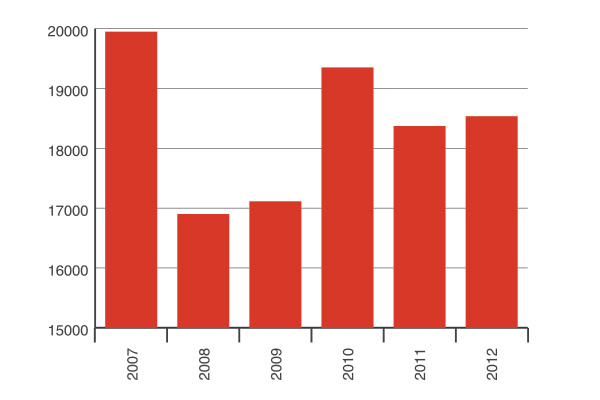
Trained GAL/CASA Volunteers
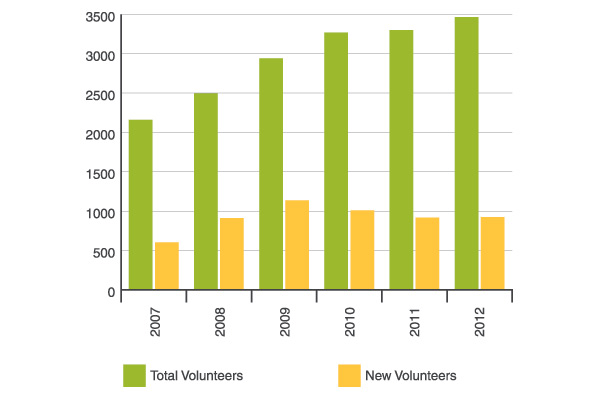
With the advent of automation, particularly data-sharing capabilities deployed by the Supreme Court through its extranet, INcite, courts and probation departments are gathering and sharing more complete and accurate information enabling them to make more informed decisions that help juveniles.